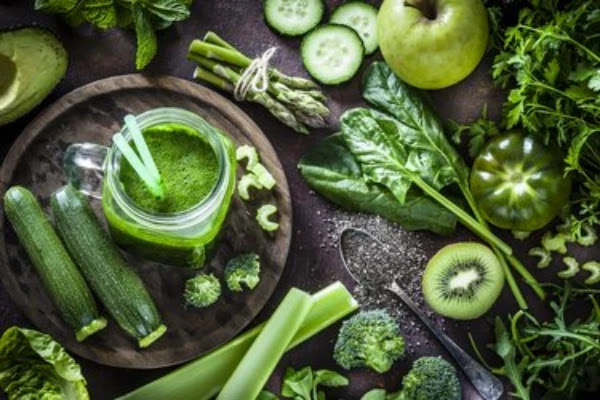- Get link
- X
- Other Apps
Finished a hearty salad loaded with colourful leaves, crunchy cucumbers, and colorful bell peppers, feeling virtuous and nurtured. But quickly after, your stomach starts offevolved low, expanding sets in, and an orchestra of gurgles and fuel ensues. What went incorrect?
One of the number one culprits in the back of digestive
misery from veggies lies in their complicated sugars, which may be challenging
for some guts to interrupt down. Cruciferous greens like broccoli, cauliflower,
and Brussels sprouts incorporate compounds known as raffinose and fructans,
notorious for his or her fuel-producing talents. Your gut's resident bacteria
have a discipline day fermenting those sugars, resulting in an unsightly
bloating symphony.
But it is not just the gas that could motive problem. For
those with touchy digestive systems, certain veggies may be downright annoying.
Onions, garlic, and peppers, beloved taste enhancers, include compounds which
could inflame the digestive tract, leading to belly pain and ache. High-fiber
vegetables, which include kale, cabbage, and asparagus, may wreak havoc on
sensitive guts, inflicting cramping and leaving you sprinting to the closest
rest room.
Symptoms of intestine conflict with vegetables
1.Bloating and gas
One of the primary ways your digestive gadget communicates
its pain with veggies is thru bloating and immoderate gas manufacturing.
Cruciferous greens like broccoli, cauliflower, and Brussels sprouts incorporate
complex sugars which might be hard to interrupt down, main to fermentation by
way of intestine micro organism and subsequent gas production. If you often
experience bloating and immoderate flatulence after consuming vegetables, it
can be a signal that your gut is suffering to digest them nicely.
2.Abdominal discomfort and pain
Another manner your digestive gadget might also speak its
aversion to veggies is through stomach discomfort and pain. Certain veggies,
consisting of onions, garlic, and peppers, contain compounds that can irritate
the digestive machine, leading to inflammation and pain. Moreover,
excessive-fiber vegetables like kale, cabbage, and asparagus can purpose issues
for individuals with sensitive guts, resulting in cramping and ache.
3.Diarrhea or constipation
If your digestive machine is sensitive to veggies, you may
enjoy common diarrhea or constipation after ingesting them. High-fiber greens,
even as useful for regularity in the general public, can be overwhelming for
those with a touchy gut. Excessive fiber consumption can result in loose stools
or get worse constipation if now not balanced with adequate hydration.
4.Acid reflux and heartburn
Acid reflux and stomach-ache can also be signs and symptoms
that your digestive machine struggles with vegetables. Certain greens, inclusive
of tomatoes and citrus fruits, are relatively acidic and can trigger these
symptoms in prone people. Additionally, highly spiced greens like chili peppers
can aggravate the esophagus and get worse acid reflux.
Solution for intestine struggles with greens
Cook vegetables: Cooking veggies can make them extra
digestible. Try roasting, boiling, sautéing, or roasting them in place of
ingesting them raw.
Gradual introduction: Introduce hard-to-digest vegetables
regularly and in small quotas to allow your gut to adjust.
Choose low-FODMAP veggies: Opt for low-FODMAP alternatives
like carrots, zucchini, cucumbers, spinach, and inexperienced beans, that are
typically better tolerated with the aid of sensitive guts.
Experiment with special greens: Find out which greens work
high-quality for you through trying different types and staring at your frame's
reaction.
Monitor and pick out triggers: Keep a meals diary to song
vegetable consumption and symptoms to discover unique triggers.
Opt for easily digestible veggies: Include without problems
digestible veggies consisting of steamed squash, sweet potatoes, and cooked
leafy vegetables.
Hydration and fiber stability: Ensure adequate hydration and
maintain a balance of soluble and insoluble fiber to save you digestive
problems associated with excessive-fiber intake.
Conclusion
Bloating, gas, abdominal pain, diarrhea or constipation, and
acid reflux disease can all be symptoms that sure veggies are not
well-tolerated through your gut. By figuring out those indicators and making
simple dietary changes, you can resolve those issues and nevertheless
experience the benefits of a plant-primarily based weight-reduction plan.
Remember to concentrate in your frame and test with specific
cooking strategies, low-FODMAP options, and low-acid veggies to discover what
works pleasant for your gut. It's critical to seek advice from a healthcare
expert or dietitian for personalized recommendation and guidance.
- Get link
- X
- Other Apps
